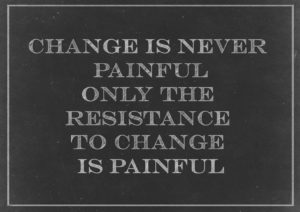
Have you ever been part of a conversation where someone is finishing your sentences before you’ve even completed your thought? Have you ever had someone interrupt you just before you are about to make an important point? Have you ever had a conversation where you couldn’t get a word in edgewise?
You’re not alone.
For some reason, some people think that they need to respond to what you’re saying right away without taking a breath or they need to interrupt you because they need to share their idea immediately before they forget it. Whereas, others may dominate the conversation just because they like to hear themselves talk or that no one has ideas as great as theirs. These individuals fall short of being a great leader because they lack the emotional intelligence skill of active listening.
Now take a moment to think of the people you know who make you feel valued and appreciated when you speak with them. It is like you are “the most important person in the room”. These people have the power to influence and persuade. They are great leaders. What qualities do they possess? Do they have a superpower that no one else has? What separates them from everyone else?
There are five ways that you can lead and influence others by actively listening so you position yourself as a person who makes others feel like they are the most important person in the room.
Listen to your own inner chatter.
Stop and ask yourself these questions:
- Am I coming from a place of judgment or am I trying to learn about another person and what they are saying?
- What thoughts and emotions are coming up for me?
- Am I truly being present and mindful of the conversation?
- Am I catching myself already formulating a response to what they’re saying?
 Turn your attention to the speaker.
Turn your attention to the speaker.
- Give them your full attention by maintaining appropriate eye contact, smiling appropriately, and nodding where you have agreement.
- Eliminate distractions by turning off your cell phone, closing the door or moving to a private area, and turn off your computer so you are not tempted to multitask.
- Don’t interrupt the conversation. Wait at least 3 seconds before you start to speak to ensure that they have finished their thought.
- Don’t finish the other person sentences before they finish talking.
“There is a big difference between showing interest and really taking interest.” Michael P. Nichols
Ask thoughtful questions or make a positive statement about something that they have said. By asking purposeful questions, you are demonstrating that you are actively listening to the conversation and interested in what the other person has to say. When you make a positive statement about something someone has said, they feel good because you took notice which makes them feel valued and appreciated.
“Effective questioning brings insight, which fuels curiosity, which cultivates wisdom.”
Chip Bell
Reflect, paraphrase, and expand. Reflect back and paraphrase what you have heard. You can gain more information and gain understanding by asking probing questions or simply stating “Tell me more.”
Allow for pauses in the conversation. Pauses are very powerful as they help eliminate filler words like “ums”, “uhs”, or “ers”. Pauses allow the speaker as well as the listener to gather their thoughts and reflect on what has been said.
Great leaders were not born. They learned what separated good from great and they worked at making people feel important. You can up level your leadership style by practicing these active listening skills. People will become magnetically drawn to your leadership presence and describe you as a great leader.
What can you start doing to become a better listener?
DEBRA KASOWSKI, BScN CEC is an award-winning best-selling author, transformational speaker, blogger, and Certified Executive Coach. She has a heart of a teacher and is certified in Appreciative Inquiry and Emotional Intelligence. Her writing has been published in a variety of print and online magazines. Debra Kasowski International helps executives, entrepreneurs, and organizations boost their productivity, performance, and profits. It all starts with people and passion. www.debrakasowski.com


 Negative thinking can cause a person to jump to conclusions without checking out all the facts. We all have negative thoughts at one time or another; negativity is normal. When we start to “paint every situation with the same brush”, we fail to remain objective and make effective decisions.
Negative thinking can cause a person to jump to conclusions without checking out all the facts. We all have negative thoughts at one time or another; negativity is normal. When we start to “paint every situation with the same brush”, we fail to remain objective and make effective decisions. When you think negatively about a situation, you may think that the worst will happen which destroys any positive energy which drives you toward a purpose and drains the possible resources. Doubt creeps in. Negativity is compounded when there is a sense of distrust or you get involved in gossip.
When you think negatively about a situation, you may think that the worst will happen which destroys any positive energy which drives you toward a purpose and drains the possible resources. Doubt creeps in. Negativity is compounded when there is a sense of distrust or you get involved in gossip. The words we use to communicate carry so much power. There are some words that we just need to drop from our vocabulary for they carry nothing but a negative context.
The words we use to communicate carry so much power. There are some words that we just need to drop from our vocabulary for they carry nothing but a negative context. The economy is constantly changing whether it is due to the current political party or available resources. It does not matter if you have right sized, downsized, or any sized, you need to adapt to the fluctuation of the marketplace. If you are a business owner, you know that you can’t sit around and wait for the timing to be just right.
The economy is constantly changing whether it is due to the current political party or available resources. It does not matter if you have right sized, downsized, or any sized, you need to adapt to the fluctuation of the marketplace. If you are a business owner, you know that you can’t sit around and wait for the timing to be just right.